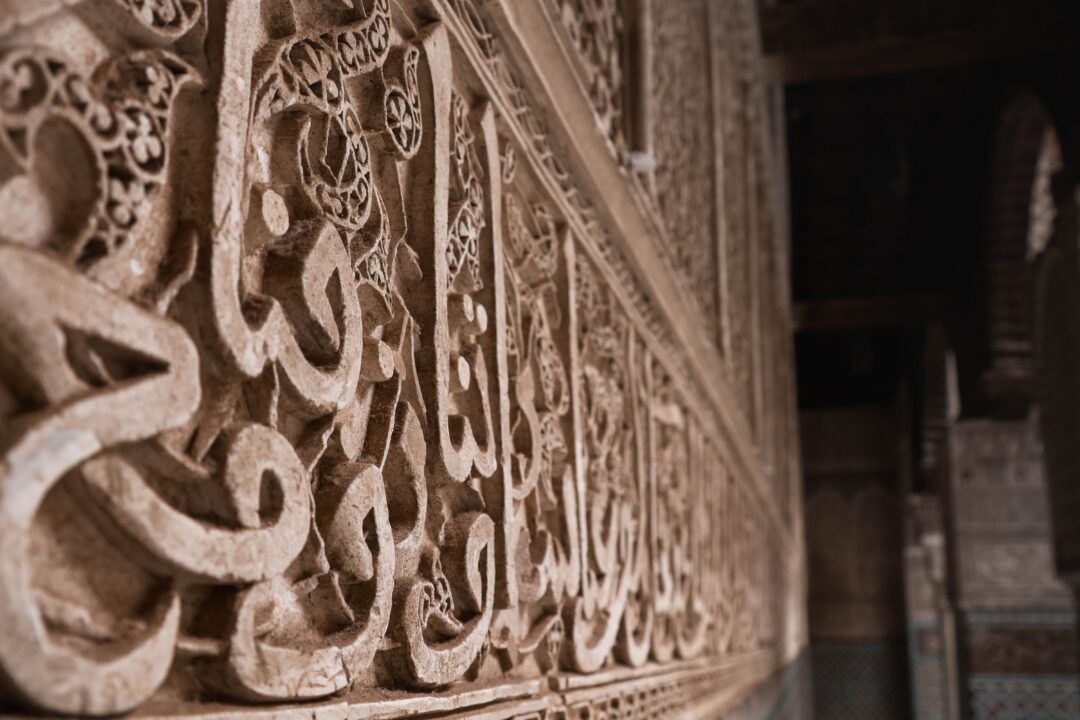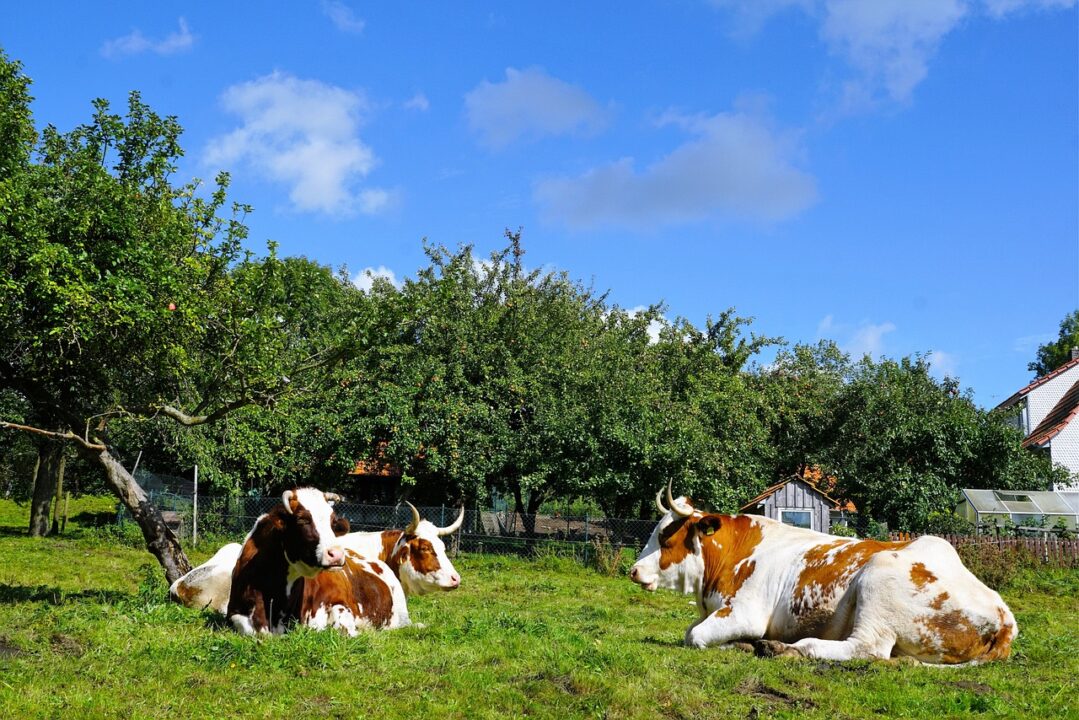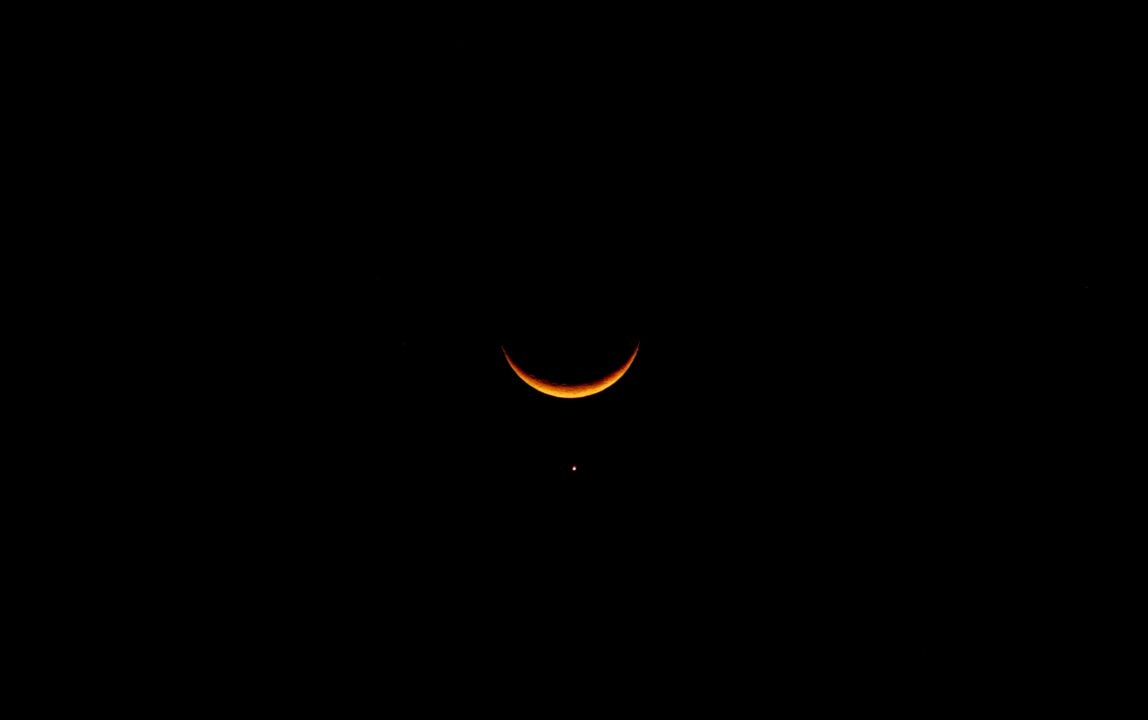Guidance regarding basic Islamic issues – which Hazrat Amirul Momineen, Khalifatul Masih Vaa has given on various occasions in his written correspondence and during MTA programmes – is being officially published below for everyone’s benefit.

Second Coming: Authenticity of two ahadith
A missionary from the UK sent two narrations from Sunan at-Tirmidhi to Hazrat Amirul Momineen, Khalifatul Masih Vaa, enquiring whether these ahadith are correct and whether we can use them in our arguments. Huzoor-e-Anwaraa, in his letter dated 18 August 2022, provided the following guidance in response to this question:
“These narrations from Sunan at-Tirmidhi are reported under ‘Kitab at-Tafsir, Bab wa min surati Muhammadsa’. Their content is as follows: The Holy Prophet Muhammadsa recited the following verse:
وَإِنْ تَتَوَلَّوْا يَسْتَبْدِلْ قَوْمًا غَيْرَكُمْ ثُمَّ لَا يَكُونُوا أَمْثَالَكُمْ
“‘And if you turn your backs, He will bring in your stead a people other than you, then they will not be like you.’ (Surah Muhammad, Ch. 47, V. 39)
“Upon this, the Companions enquired, ‘Who will be these people?’ The Holy Prophetsa, tapping on the shoulder of Hazrat Salman al-Farisira, stated, ‘This man and his people, this man and his people.’ In another narration, it is mentioned that Hazrat Salman al-Farisira was sitting beside the Holy Prophetsa when the Companions asked. The Holy Prophetsa tapped on his thigh and declared, ‘This man and his companions,’ and he further swore by the One in Whose hand his life was, that if faith were to ascend to the Pleiades, men from Persia would surely retrieve it.
“A similar narration is also found in Sahih al-Bukhari, which pertains to the revelation of the following verse from Surah al-Jumu‘ah, upon which the Companionsra asked who the fortunate people would be among whom the Holy Prophetsa would be raised again:
وَ اٰخَرِيۡنَ مِنۡہُمۡ لَمَّا يَلۡحَقُوۡا بِہِمۡ
“‘And will raise among others from among them who have not yet joined them.’ (Surah Al-Jumu‘ah)
“To this, the Holy Prophetsa placed his hand on Hazrat Salman al-Farisira and said, if faith were to go up to the Pleiades, some men or a man from these people of Persian descent would surely find it.
“Essentially, both sets of narrations prophesy the same era and the same event. The narrations in Sunan at-Tirmidhi also warn the Muslim ummah that if they neglect Islamic teachings and disregard the commandments of Allah the Exalted and His Messengersa, becoming embroiled in various worldly evils, Allah will lift the blessing of faith from such a nation. Then, righteous and virtuous men from among the Persians will re-establish this faith in the world. The narration in Sahih al-Bukhari gives the glad tidings that when the world becomes corrupt as a consequence, resulting in the deprivation of the blessing of faith (which always leads to the commissioning of prophets and other chosen ones by Allah), Allah will, for the reformation of the world during this period of corruption on earth, raise righteous and virtuous men from among the Persians who will be like the reflection of the Holy Prophetsa, and their coming will be like the advent of the Holy Prophetsa. They will retrieve the faith from the Pleiades and re-establish it in the world.
“Thus, the narrations from both books are correct and support each other, giving glad tidings about the same era. We utilise the narration from Sahih al-Bukhari more in our theology because this book is deemed more authentic and is considered by the majority of Muslims to hold the highest authority after the Book of Allah.”
Slaughtering methods and halal meat

A student from Jamia Ahmadiyya Canada wrote to Hazrat Amirul Momineen, Khalifatul Masih Vaa, stating that nowadays in the UK, chickens are more commonly killed by asphyxiation using gas rather than being slaughtered. Or, instead of their necks being cut, they are stunned, and when they are put into boiling water to remove their feathers, they die and their blood does not flow. Is it permissible to eat the meat of animals slaughtered in this manner? Similarly, in many abattoirs in Western countries, animals are slaughtered in front of other animals, with knives also being present in front of these animals, and when they are hung on hangers, their bones break. Then, in these Western countries, many atheists or people of such religions who are not People of the Book slaughter animals, whereas Islam has declared only the food of the People of the Book to be permissible. In that case, would it not be better for us to buy meat from small halal shops rather than from large abattoirs? Huzoor-e-Anwaraa, in his letter dated 22 August 2022, provided the following answer to this question:
“An animal that is killed by asphyxiation through gas, or one that is killed by being immersed in boiling water without being slaughtered, is not permissible [halal] to eat according to Islamic teachings. Indeed, Allah the Exalted explicitly states in the Holy Quran:
حُرِّمَتۡ عَلَيۡکُمُ الۡمَيۡتَةُ وَالدَّمُ وَلَحۡمُ الۡخِنۡزِيۡرِ وَمَاۤ اُہِلَّ لِغَيۡرِ اللّٰہِ بِہٖ وَالۡمُنۡخَنِقَةُ وَالۡمَوۡقُوۡذَةُ وَالۡمُتَرَدِّيَةُ وَالنَّطِيۡحَةُ وَمَاۤ اَکَلَ السَّبُعُ اِلَّا مَا ذَکَّيۡتُمۡ
“‘Forbidden to you is [the flesh of an animal] which dies of itself, and blood and the flesh of swine; and that on which is invoked the name of one other than Allah; and that which has been strangled; and that beaten to death; and that killed by a fall; and that which has been gored to death; and that of which a wild animal has eaten, except that which you have properly slaughtered.’ (Surah al-Ma’idah, Ch.5: V.4)
“As for the matter of stunning animals, they are subjected to half-stun to spare them from some degree of suffering, after which they are also slaughtered, allowing their blood to flow out. This is because, even when half-stunned, both their heart and brain are still functioning. However, if these animals are killed by having their necks cut from the upper side using a jolt-like method instead of being slaughtered from below the neck, then, according to Islamic teachings, it is also not permissible to eat them. Nevertheless, in Western countries, animals are predominantly slaughtered from the lower part of the neck.
“As for the concern that these animals are slaughtered in the presence of other animals, or that knives are visible to them, or that sometimes their bones break when they are hung on hangers after being slaughtered, or that they are slaughtered by atheists or followers of religions not among the People of the Book who do not invoke the name of Allah at the time of slaughter, none of these factors affect the permissibility of the meat, provided the animals are slaughtered according to health and safety standards that ensure the well-being of humans, from the lower part of the neck, and that no name other than Allah’s is invoked upon them. If the basmalah is recited before eating such meat, its consumption is permissible.
“Therefore, one should not unnecessarily create difficulties for oneself by being excessively scrupulous and falling into baseless doubts. It is also mentioned in a hadith as narrated by Hazrat Aishara that:
أَنَّ قَوْمًا قَالُوا يَا رَسُولَ اللّٰهِ إِنَّ قَوْمًا يَأْتُونَنَا بِاللَّحْمِ لَا نَدْرِي أَذَكَرُوا اسْمَ اللّٰهِ عَلَيْهِ أَمْ لَا فَقَالَ رَسُولُ اللّٰهِ صَلَّى اللّٰهُ عَلَيْهِ وَسَلَّمَ سَمُّوا اللّٰهَ عَلَيْهِ وَكُلُوهُ
“‘A group of people said to Allah’s Messengersa, ‘Some people bring us meat and we do not know whether they mention Allah’s name over it or not (while slaughtering the animal).’ He said, ‘Mention Allah’s name (i.e., recite the basmalah) on (the meat) and eat it.’’ (Sahih al-Bukhari, Kitab al-buyu‘, Bab man lam yara l-wasawis wa nahwahu min ash-shubuhat)
“Likewise, the Promised Messiahas was asked whether it was permissible to eat food prepared by Hindus. He stated:
“‘The sharia has made it permissible. The sharia does not insist on such restrictions; rather, it places emphasis on:
قَدۡ اَفۡلَحَ مَنۡ زَكّٰهَا
“‘[He indeed (truly) prospers who purifies it. (Surah al-Shams, Ch.91: V.10)]. The Holy Prophetsa would eat items prepared by Armenians and, in any case, one cannot do without it.’ (Al Hakam, no. 19, vol. 8, 10 June 1904, p. 3)
“Thus, a person should strive to conduct their affairs and worldly matters with piety, without succumbing to whims and doubts. And where there is a possibility of engaging in a prohibited act or the prohibition of something is clear, one must avoid it in every instance. In this regard, another hadith of the Holy Prophetsa, reported by Hazrat Aishasa, provides us with the best guidance:
مَا خُيِّرَ النَّبِيُّ صَلَّى اللّٰهُ عَلَيْهِ وَسَلَّمَ بَيْنَ أَمْرَيْنِ إِلَّا اخْتَارَ أَيْسَرَهُمَا مَا لَمْ يَأْثَمْ فَإِذَا كَانَ الْإِثْمُ كَانَ أَبْعَدَهُمَا مِنْهُ
“‘Whenever the Holy Prophetsa had to choose between two options, he always chose the easier one as long as it was not sinful. If it involved sin, he would be the most avoidant of the two.’ (Sahih al-Bukhari, Kitab al-hudud, Bab iqamati l-hududi wal-intiqami li-hurumatillah)
“[The editor of Al Badr (1904) reports:]
“‘In a similar vein, it has been mentioned regarding the Promised Messiahas that once, when the marvellous inventions of America and Europe were being discussed, the conversation also turned to the matter of canned milk and broth, etc., which arrive from abroad and are considered to be very fine and pure. One of its noted qualities was that it was untouched by human hands. Even the milk is extracted by machines. Upon this, the Promised Messiahas remarked:
“‘‘Since Christians have now become such a people who pay no heed to the limits of religion and its decrees of lawful and unlawful, and since the consumption of pork is prevalent among them, and they do not invoke the name of God when slaughtering animals – rather, it has been heard that they sever the heads of the animals in a jolt-like manner – doubts may arise that biscuits and milk, etc., produced in their factories might be mixed with pig fat and pig milk. Therefore, in our opinion, consuming such biscuits, milk, and broth, etc., from abroad is entirely against piety and not permissible. When pig rearing and consumption are so commonplace among these people in the West, how can we believe that there would not be some element of it in other edible items that they prepare and send abroad?’
“‘Subsequently, Abu Saeed Sahib, also known as Arab Sahib, a rice merchant from Rangoon, presented an incident to the Promised Messiahas, saying that there was a biscuit and bread factory in Rangoon that was owned by the British. A Muslim trader bought it for nearly one and a half lakh rupees. When he examined the account books, he discovered that lard had also been purchased for use in the factory. On inquiry, the factory workers revealed that they used it in biscuits, etc., for flavour, and that such fat is added in these products in England and America as well.
“‘This incident can inform the readers about the extent of piety and discernment the Promised Messiahas exercised in such matters. However, since there were among us those who frequently had to travel and some brethren are still in remote regions like Africa, etc., where they might require such milk and biscuits, etc., the matter was reconsidered, keeping them in mind. Additionally, it was pointed out that Hindus also maintain their items very dirtily, and their cooking pots are often licked by dogs.
“‘Upon this, the Promised Messiahas stated:
“‘‘In our view, the food of the Christians, which does not raise doubts and which the Holy Quran has not declared forbidden, is lawful. Otherwise, it would mean that we abstain from certain foods at home, deeming them forbidden, but consume them from the hands of Christians when outside. And it is not just about Christians; if a Muslim is also of doubtful status, we cannot consume his food. For instance, if a Muslim is insane and unaware of the distinctions between lawful and unlawful, then what reliability can his prepared food have? That is why we do not allow the consumption of biscuits from England in our homes, but instead, we order them from a Hindu company in India.
“‘‘With regards to Hindus, our situation is one of necessity [iztirar], for they are extensively integrated within our society, and their shops are ubiquitous. If Muslim shops are available and one can obtain everything from them, then certainly one should not buy edible items from the Hindus.’’ (Al-Badr, no. 27, vol. 3, dated 16 July 1904, p. 3)
“Hence, the gist of the matter is that one should neither indulge in excessive suspicion to avoid permissible things without reason nor adopt a reckless attitude and strive to use everything regardless of its lawful or unlawful status. Rather, one should endeavour to lead a life in accordance with Islamic teachings, investigating affairs to a reasonable and cautious degree.”
Eid al-Adha sacrifices and related practices

Someone from Canada wrote to Hazrat Amirul Momineen, Khalifatul Masih Vaa, asking whether it is necessary for the person performing the sacrifice on Eid al-Adha to refrain from cutting their hair and clipping nails from the sighting of the moon of Dhul Hijjah until the sacrifice is made. And does this directive apply to those living abroad who, instead of performing the sacrifice themselves, give money to the Jamaat or a relative to carry it out on their behalf? Huzoor-e-Anwaraa, in his letter dated 22 August 2022, provided the following guidance on this issue:
“It is narrated in the Hadith that one who intends to offer a sacrifice should not cut their hair or clip nails from the sighting of the moon of Dhul Hijjah until the sacrifice is made. According to the narration of Hazrat Umm Salamahra, the Holy Prophetsa said, ‘Anyone who desires to sacrifice [on Eid al-Adha] should not get his hair cut or nails clipped after observing the new moon of Dhul-Hijjah until [the sacrificial animal] has been sacrificed.’ (Sahih Muslim, Kitab al-adahi, Bab man dakhala ‘alayhi ‘ashr dhu l-hijjah)
“Moreover, it is reported from Hazrat Aishara that when Allah’s Messenger sent the sacrificial animal from Medina, I used to weave garlands for his sacrificial animals, and then he would not avoid those things that a person in the state of ihram avoids. (Sahih al-Bukhari, Kitab al-hajj, Bab fatli al-qala’id li l-budni wa l-baqar)
“Based on these two types of Hadith, Islamic jurists [fuqaha] have different opinions on this issue. Some jurists consider it forbidden [haram] for someone who is sacrificing to cut their hair or clip their nails. According to the Shafi‘i school of thought, doing so is disliked [makruh] but not haram. One narration from Imam Malik considers it makruh, and another says it is not makruh, while according to Imam Abu Hanifa, it is not makruh at all. (Sharh an-Nawawi ‘ala Muslim, Kitab al-adahi, Bab man dakhala ‘alayhi ‘ashr dhu l-hijjah)
Hazrat Musleh-e-Maudra states:
“‘Those who intend to perform the sacrifice should not shave from the first of Dhul Hijjah until they have made the sacrifice. Our Community should pay special attention to this matter because the practice of this sunnah has become neglected among the general populace.’ (Al Fazl, Qadian Dar al-Aman, No. 24, Vol. 5, 22 September 1917, p. 4)
“In summary, it is preferred [mustahabb] and desirable for one who intends to sacrifice not to cut their hair or clip their nails; however, it is not obligatory or essential. Therefore, if a person intending to offer a sacrifice cuts their hair or clips their nails, it does not affect the validity of their sacrifice. The same ruling applies whether one performs the sacrifice themselves or has it performed by someone else.”
(Compiled by Zaheer Ahmad Khan, Head of Records Department, Private Secretariat, London. Translated by Al Hakam.)

